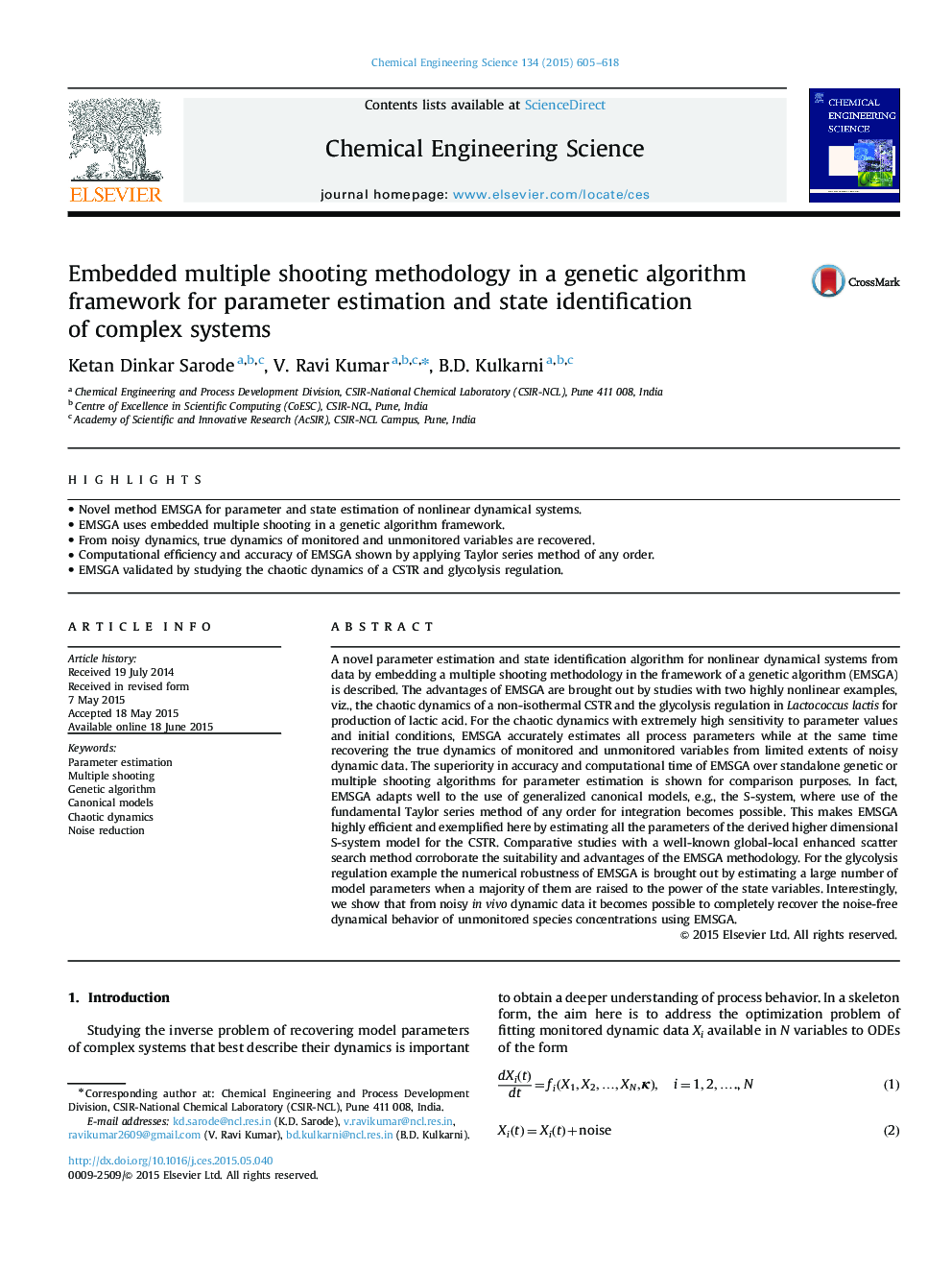| Article ID | Journal | Published Year | Pages | File Type |
|---|---|---|---|---|
| 6589789 | Chemical Engineering Science | 2015 | 14 Pages |
Abstract
A novel parameter estimation and state identification algorithm for nonlinear dynamical systems from data by embedding a multiple shooting methodology in the framework of a genetic algorithm (EMSGA) is described. The advantages of EMSGA are brought out by studies with two highly nonlinear examples, viz., the chaotic dynamics of a non-isothermal CSTR and the glycolysis regulation in Lactococcus lactis for production of lactic acid. For the chaotic dynamics with extremely high sensitivity to parameter values and initial conditions, EMSGA accurately estimates all process parameters while at the same time recovering the true dynamics of monitored and unmonitored variables from limited extents of noisy dynamic data. The superiority in accuracy and computational time of EMSGA over standalone genetic or multiple shooting algorithms for parameter estimation is shown for comparison purposes. In fact, EMSGA adapts well to the use of generalized canonical models, e.g., the S-system, where use of the fundamental Taylor series method of any order for integration becomes possible. This makes EMSGA highly efficient and exemplified here by estimating all the parameters of the derived higher dimensional S-system model for the CSTR. Comparative studies with a well-known global-local enhanced scatter search method corroborate the suitability and advantages of the EMSGA methodology. For the glycolysis regulation example the numerical robustness of EMSGA is brought out by estimating a large number of model parameters when a majority of them are raised to the power of the state variables. Interestingly, we show that from noisy in vivo dynamic data it becomes possible to completely recover the noise-free dynamical behavior of unmonitored species concentrations using EMSGA.
Keywords
Related Topics
Physical Sciences and Engineering
Chemical Engineering
Chemical Engineering (General)
Authors
Ketan Dinkar Sarode, V. Ravi Kumar, B.D. Kulkarni,
